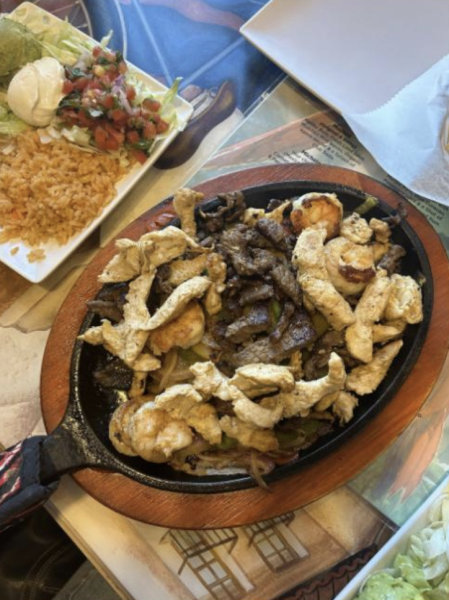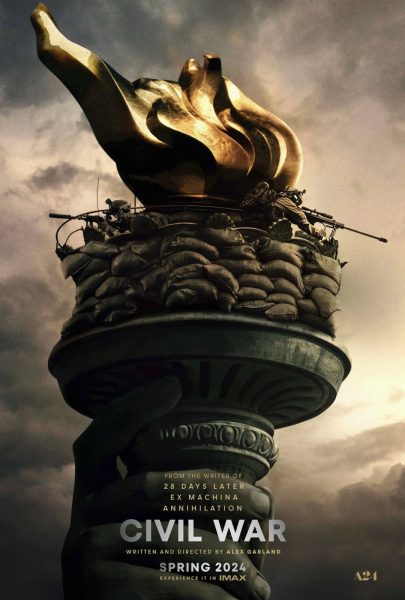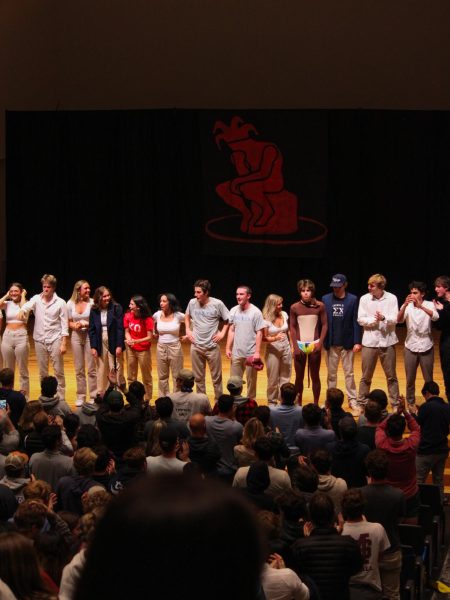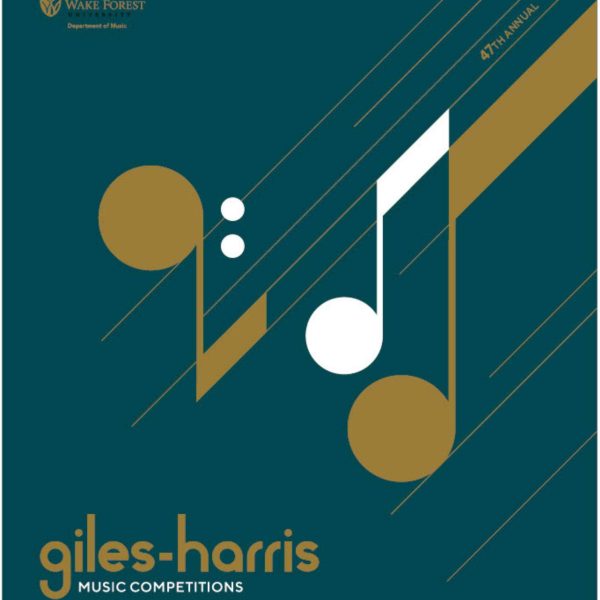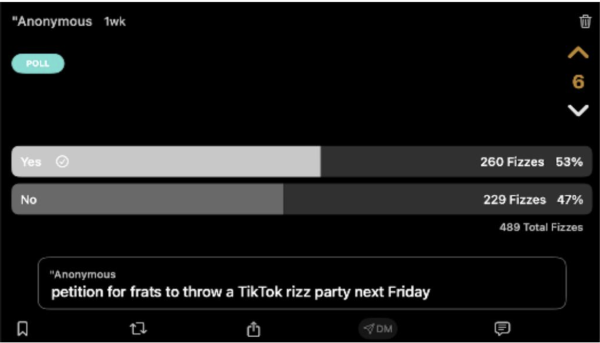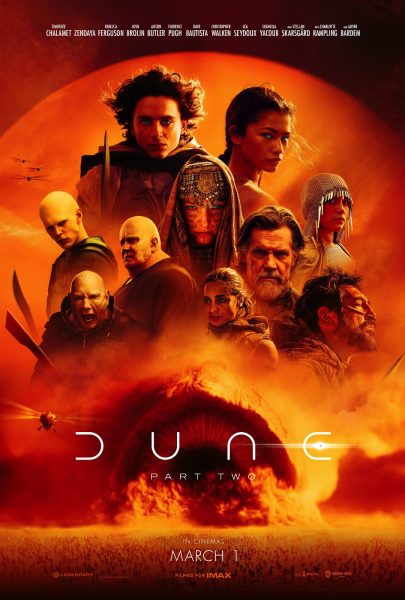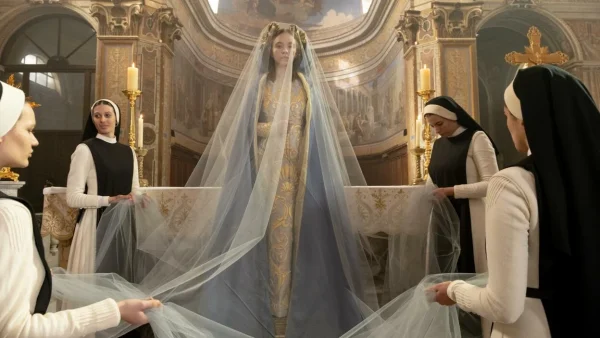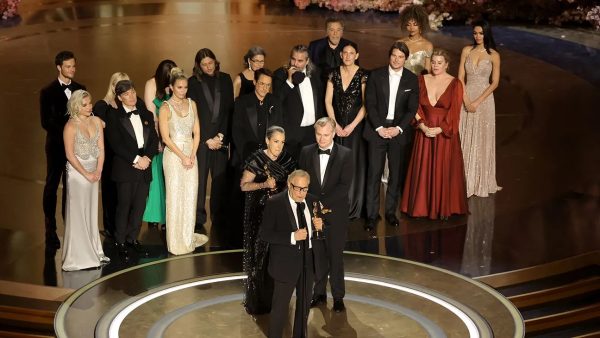Talking sad girls and showbiz
Snail Mail speaks to the Old Gold & Black ahead of her May 6 concert
Snail Mail performs at a March 2022 concert.
Ahead of her May 6 performance in Winston-Salem, Lindsey Jordan, also known as Snail Mail, spoke over the phone to the Old Gold & Black on March 21. Among the topics covered were the 2022 indie horror film “Skinamarink,” of which she is a professed fan, the state of the industry, tour life and Snail Mail songwriting lore. The three of us are such massive fans it was hard not to make it obvious that we were absolutely geeking out during the interview. We were thrilled to be able to speak to Jordan, and we extend our deepest thanks to her label Matador Records and look forward to working with them further. If anyone from Matador reads this, I think it could be really cool to let us talk to Pavement and/or Yo La Tengo next — just a thought. Finally, we promised Jordan we would write “OGB” on our foreheads and wear pink shirts so she could spot us at the show in May. Hopefully this story will get updated with us in costume.
So, one important thing we wanted to immediately bring up was that, in preparation for this interview, we all decided to go and watch Skinamarink. How many times have you watched it at this point?
I saw it in theaters three times. But I wouldn’t have done that had there not been like friends that wanted to go see it. I saw it twice by myself but would not have gotten to see it three times in the theater. You know, being that it’s not that enjoyable to watch. I had a bunch of friends that were like, “I’m not gonna go unless Lindsey goes.” So yeah, three times.
Who are your top three musical artists?
I would say my all-time top three artists are probably Elliott Smith, My Bloody Valentine and the Velvet Underground. Keep it classic.
How do you take care of your mental and emotional health when you’re on the road?
It’s a lot. I’m pretty used to it. It gets pretty gnarly when you’re talking about touring foreign countries because with touring America, I don’t even know how many times I’ve done it. Probably like 15. I know what I’m doing. I know where I can get Mucinex. I know what the sort of healthy fast food is when I’m on my last legs. I’ve toured Europe I think eight times. That never fails to be challenging. It doesn’t get easier. And then Asia is very challenging. I try to spend a lot of time alone. I like to be in the bus, like in a different room than everyone else, just reading or whatever. I try not to party too hard. I try to get as much sleep as I can and take every day as it comes. Creatively, I do usually feel like I’m pausing. There’s nothing happening that I want to write about. I don’t really like to write about being on the road. I don’t get a lot of time where I’m truly able to be myself, make noise, experiment and try things out, so I’m really bad at writing on tour. I’ll sometimes bring an acoustic guitar into a hotel room, and then that’ll be helpful, but I feel like I’m so burnt out, mentally, on tour that I feel like I do more harm than good when I’m trying to write sometimes.
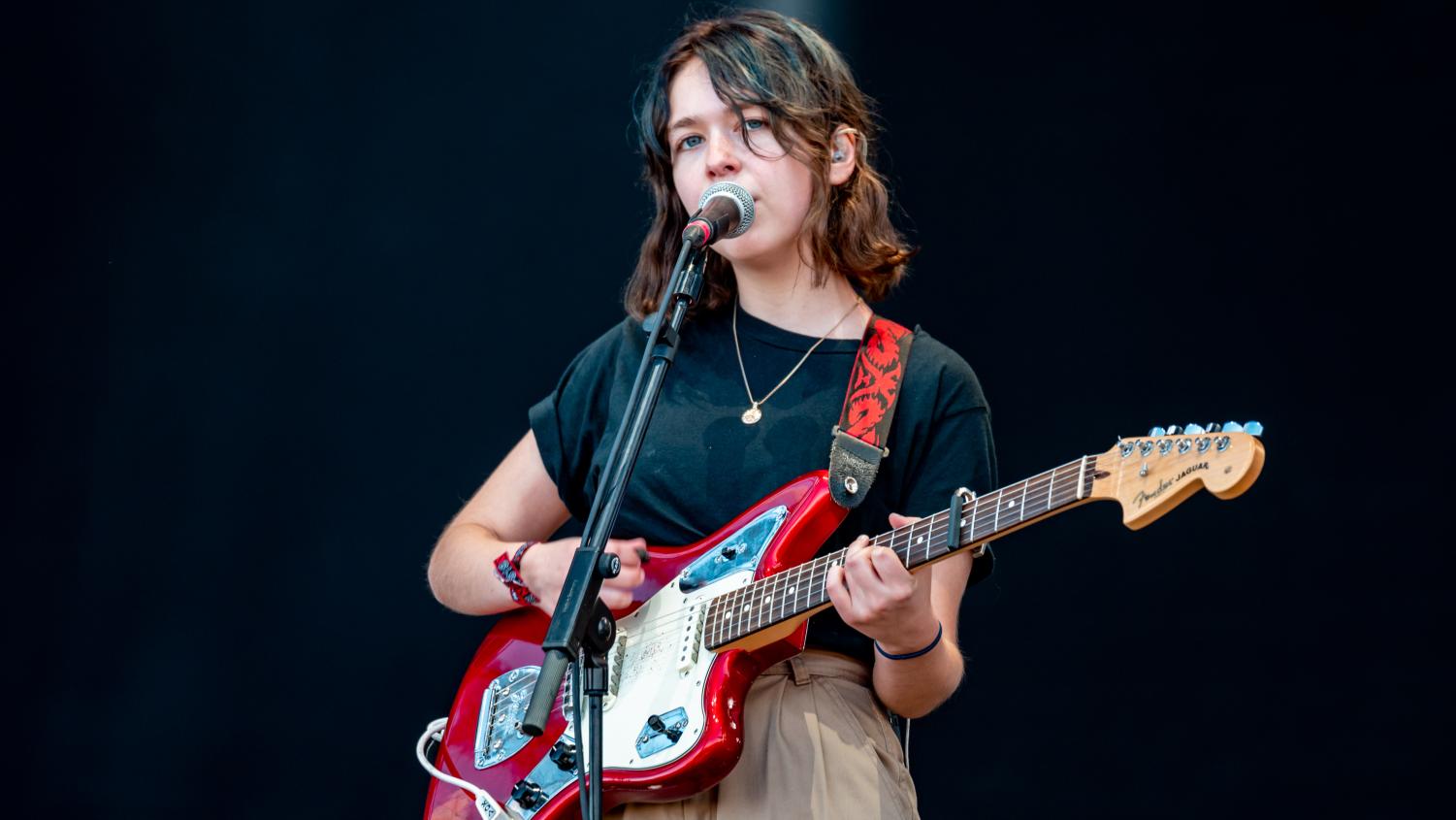
When you get off tour, what do you then do to recenter yourself creatively?
It’s hard. I’ll play PS5 for like four days straight and then feel mentally rested. If I’m writing, I’ll just try to keep at it. It’s hard. It doesn’t necessarily always work like this. But if I’m writing, I hope that I’m feeling like my best self.
Being a musician on the road, you deal with being constantly on the move. There are a lot of mental health and other health challenges that come from that. You personally had vocal cord surgery in the last year. How have you been able to deal with these challenges as a musician in the industry?
I don’t think the industry does anything for mental health. I feel like that’s probably the same for a lot of industries. The music industry is its own conversation, but just having friends that play music is helpful. It was a terrible, difficult journey. Luckily, by moving our tours around, we still were able to do it. It’s not an easy job. You probably will go crazy. I just tried to keep my wits about me and just check myself when it seems like I’m going off the wall. I make time for normal things, too, like my hobbies that aren’t music-related, so that I can get grounded.
You talked a little bit about how having a support group of friends who have experienced similar things in the industry can help. How does that help you deal with fame?
There are very few people that I’m really close with and that play music. Katie from Waxahatchee, we’ve been friends since I was like, 15. We talk on the phone all the time, and she gives me advice on things like carrying yourself and how to deal with a lot of the things that drive me crazy. Having an older person that’s done it all before is cool. Other than that, Sophie from Soccer Mommy is one of my best friends in music. I really admire the way that she does things. Every time I see her on the road, it’s the greatest feeling of connecting and having a network. Otherwise, I don’t hang out with that many musicians. Most of my friends are just normal people. But it’s good to have people to talk to that have been there before because there are definitely a million ways that you could go about things, especially when it comes to running the business part of it. With bands that are just getting signed or just starting to work with managers, it’s really important that you don’t end up with somebody who’s gonna take advantage of you. Luckily, the position that I was in, I was able to get in touch with older people and talk to them about who to trust, who not to trust, who’s a good agent, who’s not.
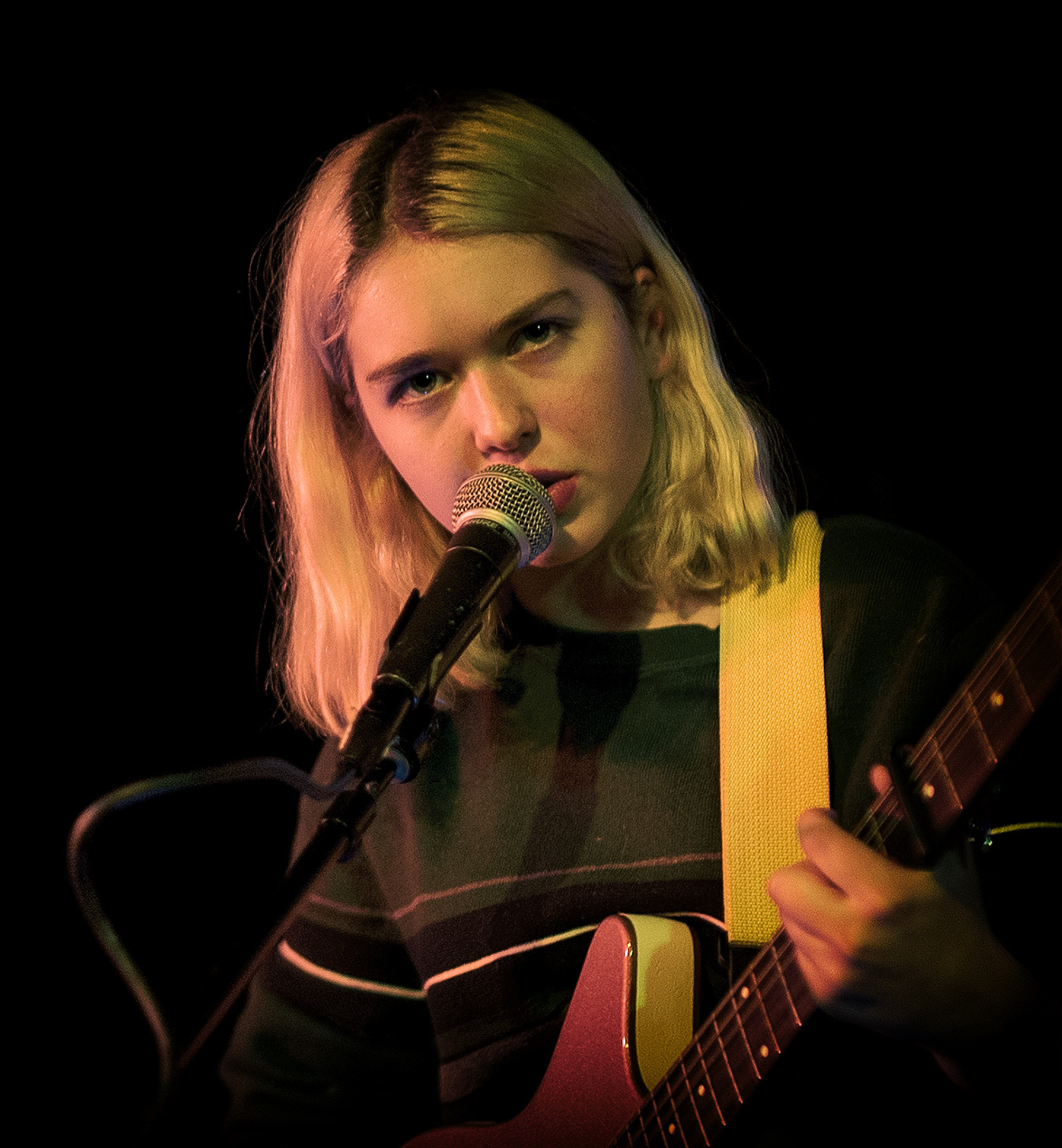
On the topic of fame, the song “Glory” from your recent project, “Valentine,” name-drops various places in Los Angeles, Ca. It seems to grapple with that as a new part of your life. How has your view of fame changed from the “Lush” project to this one?
“Glory” is kind of like a diss track on somebody else. I didn’t expect people to realize because I didn’t say anything about it. It touches on my relationship with fame but mostly my relationship with it through this other person. Everything becomes less alluring and shiny the longer that you’re on it. There are so many types of behaviors that come with it. The way people act, I don’t want to be anywhere near it, I don’t want to be part of it. I feel like the thing that’s kept me from being a dumb asshole is that I love music. I want to work on my craft. I want to work hard and kind of keep my head down. With “Lush,” it was definitely exciting. With all of the success, I was like, who wants to buy me a drink? And then I definitely saw different dark corners, and I’m just not interested in doing anything other than being a good musician. Being around people with fame as their only goal, you can just feel it. That’s how I don’t want to be. I wouldn’t have thought it was anywhere near as lame as it is until I was in the thick of it so often. You can tell when it’s not about the craft.
A recent occurrence in the state of indie rock is the emphasis on “sad girl indie music.”People like to group artists like Phoebe Bridgers, Lucy Dacus, Soccer Mommy and many others, including yourself, into this one amorphous blob of emotion. Can you speak on that a little bit?
In another interview, I was asked my least favorite thing about music, and what I would change. I said this. I did this piece really early in Snail Mail for the New York Times. It was about rock being ruled by women now and talked about a couple of people that are in that category. It put this “woman” target on my head, which drives me crazy. I feel like we’re all morphed together, and we’re not looked at in our own right. When something happens to one of the “sad girls” online, people say things like “I fucking hate all the sad girls” even though we are very different people and different songwriters. It’s nobody’s fault that somehow we all managed to kind of come out at the same time. If that’s one of the things that helped people find Snail Mail, that’s cool. I don’t even like talking about being a woman in the press. It makes me feel like I have two jobs: one of them to be some kind of activist and the other to be a musician. I did not sign up to be a spokesperson for women’s rights. I definitely care about the greater conversation. I just feel like there’s been women in music for a long time, and I don’t understand how me, Phoebe Bridgers, Lucy Dacus and Soccer Mommy became the new presidents of being women in music. We all make pretty different music. It feels degrading to all of us.
What has your experience with indie music publications been like?
Pitchfork is cool. I’ve had good experiences with Pitchfork. All of their writers are writers. All the pieces I have done for them have been really insightful. I don’t know who started the “sad girl” thing. If one of the indie outlets said it, I’m sure that that was a big thing for people, but I don’t know. I can’t really tell what’s what. There are a million things that are grouping people together. I don’t understand it, but I guess it helps people find new music.
You are one of the most high-profile acts to come to Winston-Salem in a pretty long time. It’s like you and Paul McCartney, basically. Is there any particular reason you decided to come to Winston-Salem?
In the tour itself, we’re mostly doing places that we’ve never been to — a lot of smaller markets and cities that get skipped over on the main market tours. I’ve never heard of Winston-Salem, but I’m a big North Carolina fan. I love Durham and Asheville.
Had you heard of Wake Forest by any chance? Just curious.
No. What is Wake Forest?
Haha sorry, that’s the name of our university. You had a performance with Soccer Mommy and a few other people at the Pavement Museum this past year. What was that like?
That was awesome. I didn’t actually know what the event would be like; I didn’t know there’d be people there. I got to do some Pavement covers; I got to see my friends play. It was really fun. I fell on my ass at that show. I was wearing some big jeans, but I wasn’t wearing shoes to accompany the jeans properly, and I slipped and fell backwards. It was actually so scary and embarrassing. In the moment, I laughed it off, but I was so scared that I had broken something. But it was really fun, and Pavement was cool. We definitely wanted to do a good job, so it was stressful. But it was one of the cooler things that we’ve gotten to do.
What kind of people do you think listen to Snail Mail?
Oh, a lot of different people. Every time we do a new tour, the crowd drastically changes, which is cool but also scary. We’re like, what did we do with the last crowd? It’ll be different. On the “Valentine” tour, we had more young people than usual. A lot of the time it’s older people mixed in with younger people, which is cool. Usually it’s a mixture between older dudes and college-aged people and maybe some people in their thirties.
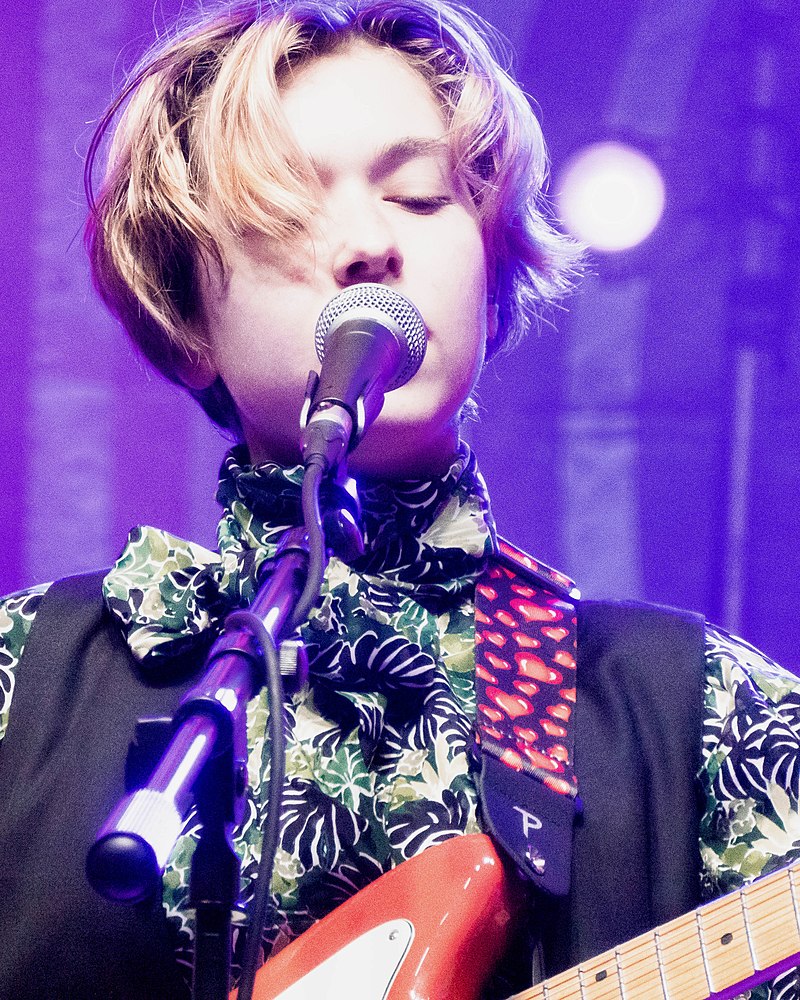
So, this is a long shot, but do you have any news about album three?
I’m working on it. Everything takes me so long, but I’m definitely working everyday on it.
You use a sample in “Forever (Sailing).” Are you using that as a songwriting method for this new project?
I haven’t. Getting that sample cleared was awful. It almost delayed the record. We put it out in November; it almost would have had to come out in February because of the legal situation with that song. We had to track this woman down. She’s this obscure Swedish artist from the ’80s, so we were contacting potential friends of friends of hers and lawyers, and eventually we got it cleared. She wouldn’t let us call it “You and I,” so it’s called “Forever (Sailing).” All of that was so stressful. Everyday, I was like, I have to remake the song with a different sample. That put the fear of God in me every day, that we’d have to go redo that song. So, I don’t know. Maybe. I mean, it was fun. It was really challenging, trying to figure out what to do with a song like that, but I heard it, and I wanted to sample it. That’s probably one of the first times that’s ever happened to me. It’s hard to build off of. I was trying to write chords while listening to it. It’s hard to not just repeat what’s already being given to you.
What are your favorite songs off of each of your records?
“Automate” is my favorite off “Valentine.” “Speaking Terms” is my favorite off “Lush.” Off of “Habit,” I think it’s “Static Buzz.” We played that the other day, and it was so fun.
What do you think the movie “Skinamarink” meant? What is your theory?
I was hoping that it meant more than I now think it does. There’s this short film called “Heck,” where this kid is walking around a similar-looking purgatory, and you find out at the end that he died of cancer. So that’s like hell, or purgatory, which I thought was pretty cool. I was hoping that was what “Skinamarink” was because there’s clearly something wrong with the parents, but I think it’s just supposed to be sad and liminal. Maybe the kids aren’t dead, but they’re in this awful situation where they’re just being haunted by a demon. I don’t know if there’s more to it.
What are your top three movies?
I love “Being John Malkovich” — that movie is awesome. Also, “Mulholland Drive.” I just saw this movie “Angst,” from ’83. I thought that was awesome. It’s about this killer, home invasion type thing that breaks into someone’s house. The shots are really cool, the music’s cool. I went into it expecting just gore, and I feel like I came out of it seeing it as a piece of art. I also love “The Thing” — I finally just saw that one.
In past interviews, you’ve said that if you hadn’t gone into music, you would have been an English major. In a couple of your songs, like Glory and Pristine, there are lyrics focusing on “looking away.” “Couldn’t even look straight on you shining in your glory,” or “And you’ll never change to me, because I’m not looking.” What does it mean to really see another person? Why is that important?
Good observation, nobody’s ever asked me about that. On “Valentine,” one of the central themes of the record is looking past and not really taking a person in because you want them to be perfect. When you look closely at somebody, you get to know them, and you see everything. There’s something very not human about fantasizing your way into a relationship. You’re imagining all of this stuff, and you put this person on a pedestal. But as soon as you really get to know them, if it gets to that point, you realize that’s not what love is. It’s very much wanting to make somebody into something and not wanting to actually look at them for how they are. Because you see some ugly shit when you get to know people, for better or for worse. “Lush” is about creating the fantasy, and “Valentine” is about the fantasy being destroyed.
What do you think of songs where the title is a woman’s name? You feature a couple: “Mia,” “Madonna.”
There was another girl’s name in one of the songs, and she reached out and asked me to change it. I was like, okay. So there would have actually been way more. But I think it’s cool. I think it’s bold. Mia is like not the real name of the person that song was about, but I made sure the person knew who I was talking about. I like how bold it is. It’s kind of nasty, but it also can be sweet. The statement of it all is very much like, “I’m gonna get the last word.”
How have people responded to the songs that you’ve written about them or named after them?
“Light Blue” was for somebody that I dated when I was like, 19. We actually broke up the day after. So maybe it didn’t go over that well, but I think the gesture was taken positively. Otherwise, anytime I’ve ever shown someone a song about them while it’s in the works, there’s critiques. Like, “why did you say this like this?” So now I’m just keeping it secret. It causes confrontations sometimes. I got a call after “Ben Franklin” came out. Somebody was like, “Is that about me?” The lyrics “Sometimes I hate her just for not being you?” No, it wasn’t. It was an awkward conversation. It was about someone else, but she didn’t believe me. That was gnarly. I don’t know if I’ll make more records with names in them because I feel like I’m all about doing something new. But I like what it says. I’d be pissed if someone did it to me.
There are a lot of fan theories about your lyrics online. How do you react to seeing those and knowing they’re wrong? When fans are interpreting what you said in a way that you didn’t intend for it to mean?
I feel like people are almost always wrong about my lyrics, which is fine. I mean, I didn’t really say that much. I just try to avoid those things because it takes all of me to not reply. I don’t like the idea of people knowing that I’m snooping around, so I just don’t snoop around anymore.
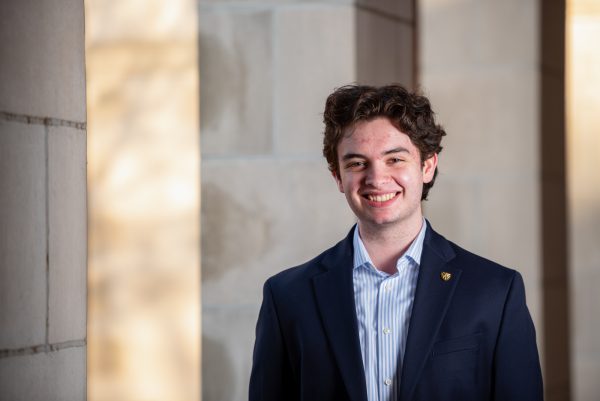
James Watson is a sophomore from Wilmington, N.C. who plans on majoring in politics and international affairs and minoring in classical studies. Outside...

Maryam is a senior from Karachi, Pakistan. She is majoring in political science with a minor in philosophy. Outside of OGB, she’s either listening...



